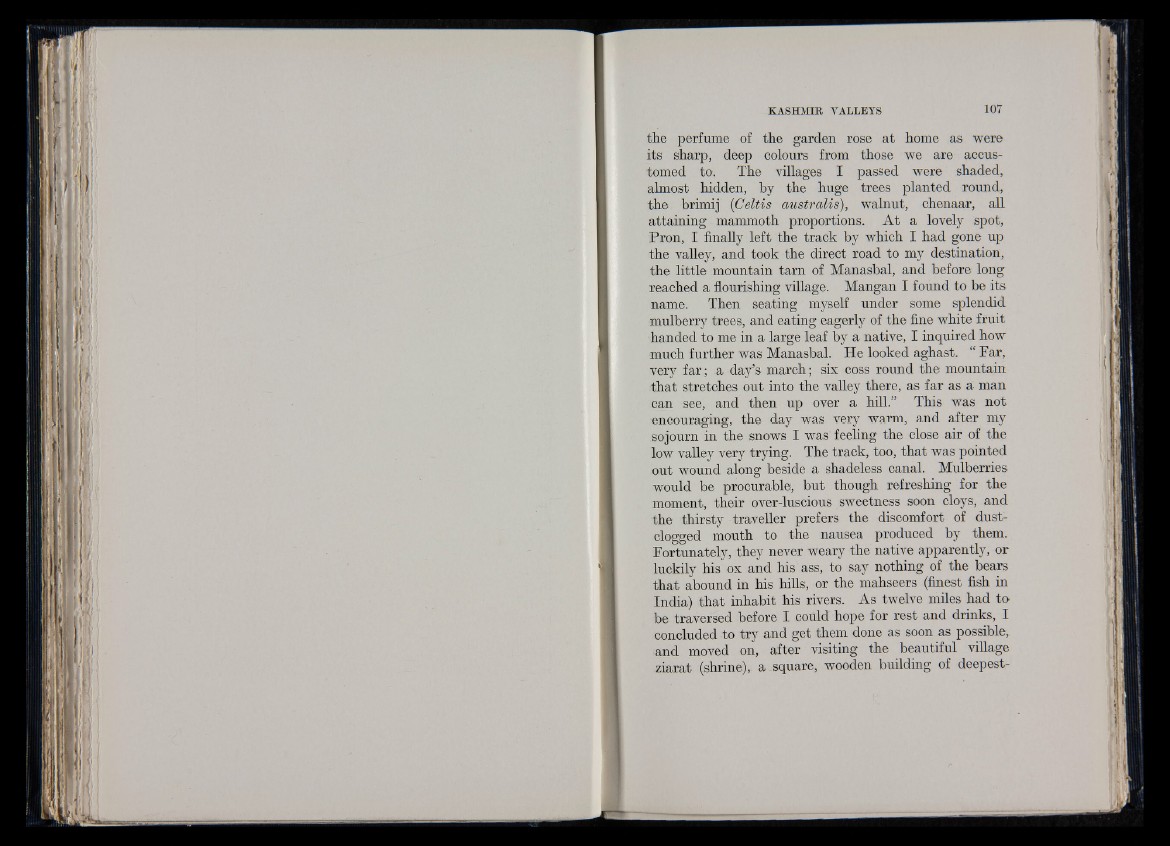
the perfume of the garden rose at home as were
its sharp, deep colours from those we are accustomed
to. The villages I passed were shaded,
almost hidden, by the huge trees planted round,
the brimij (Celtis australis), walnut, chenaar, all
attaining mammoth proportions. At a lovely spot,
Pron, I finally left the track by which I had gone up
the valley, and took the direct road to my destination,
the little mountain tarn of Manasbal, and before long
reached a flourishing village. Mangan I found to be its
name. Then seating myself under some splendid
mulberry trees, and eating eagerly of the fine white fruit
handed to me in a large leaf by a native, I inquired how
much further was Manasbal. He looked aghast. “ Far,
very far; a day’s march; six coss round the mountain
that stretches out into the valley there, as far as a man
can see, and then up over a hill.” This was not
encouraging, the day was very warm, and after my
sojourn in the snows I was feeling the close air of the
low valley very trying. The track, too, that was pointed
out wound along beside a shadeless canal. Mulberries
would be procurable, but though refreshing for the
moment, their over-luscious sweetness soon cloys, and
the thirsty traveller prefers the discomfort of dust-
clogged mouth to the nausea produced by them.
Fortunately, they never weary the native apparently, or
luckily his ox and his ass, to say nothing of the bears
that abound in his hills, or the mahseers (finest fish in
India) that inhabit his rivers. As twelve miles had to
be traversed before I could hope for rest and drinks, I
concluded to try and get them done as soon as possible,
and moved on, after visiting the beautiful village
ziarat (shrine), a square, wooden building of deepest